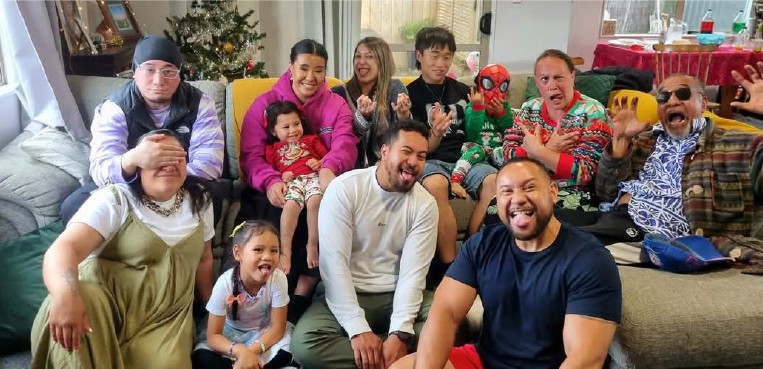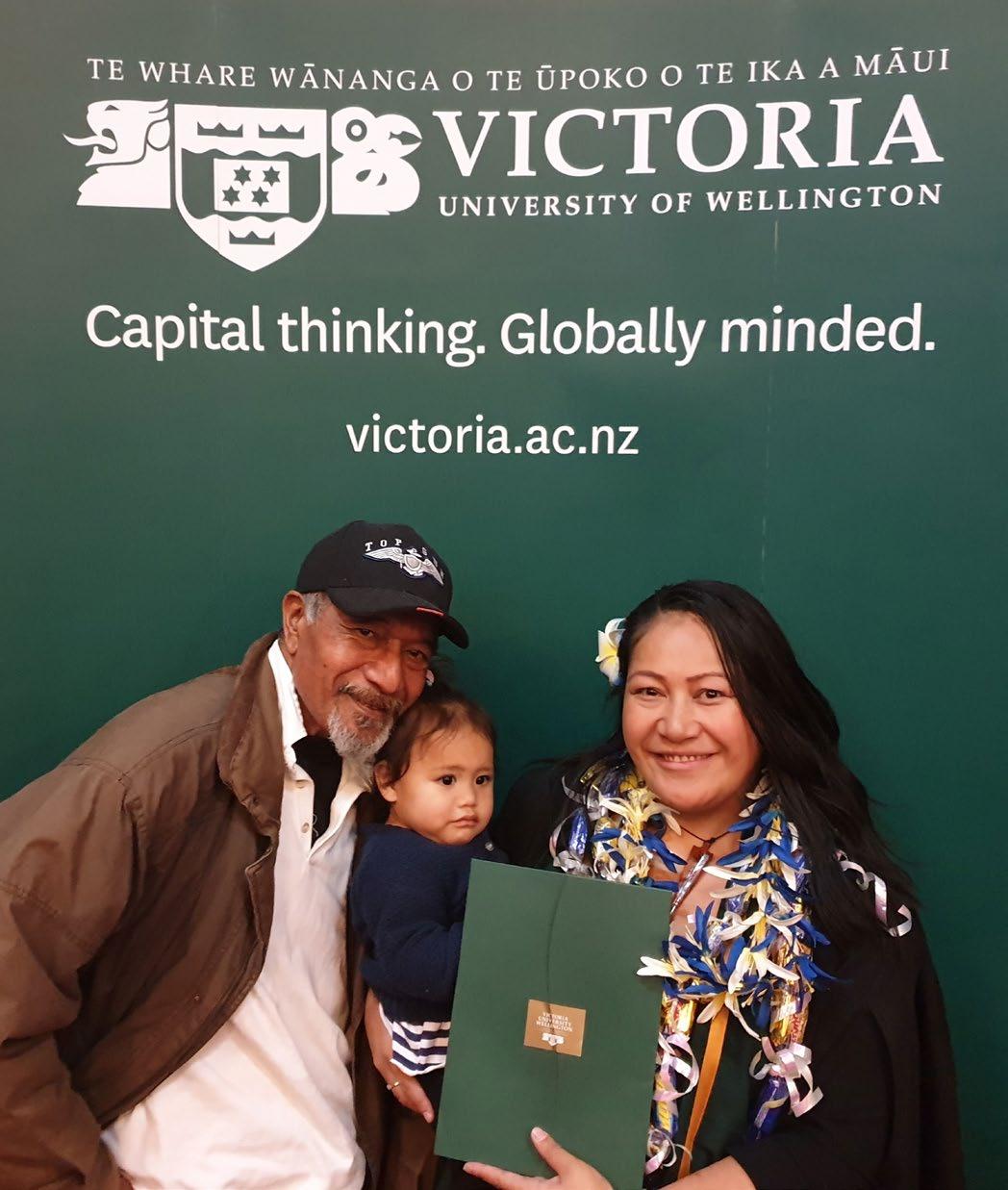
5 minute read
Rosie Solouota’s fight for sign language, belonging and change
For Roseanne (Rosie) Solouota, sign language is more than just a means of communication, it’s a lifeline to families, identity and inclusion. Her story is one of resilience, community and the urgent need for every Deaf child and their whānau to be fully supported from the start.
When Rosie Solouota reflects on her journey, she signs with humility and warmth.
Born hearing, Rosie became profoundly deaf by the age of one after contracting measles and chickenpox.
For her Niuean family in Wellington, the diagnosis came as a shock, but it wasn’t a setback. Instead, it became a mission. A mission grounded in love, determination and the unshakeable commitment that Rosie could thrive.
“My mum and my brother didn’t know where to turn, but they didn’t hesitate,” Rosie recalls. “We travelled to Auckland to visit Kelston Deaf Education Centre. That one visit changed everything for our family.”
There, they were introduced to a book called Total Communication (TC), which paired English words with corresponding signs. For Rosie’s family, this book became more than a tool, it became their lifeline.
“My family learned sign language from that book,” says
Rosie. “We created our own mix of signs, some from TC, some home signs and gestures we made up ourselves. It wasn’t perfect, but it worked. My family really stepped up and because of them, I never felt alone.”
Those early years laid the foundation for Rosie’s future. Communication was not just a daily challenge, it became a defining part of her identity, one she would grow to champion.
As Erica Dawson of Deaf Aotearoa explains, Rosie’s story is far from unique, with “95 percent of Deaf children born to hearing families. Only around 5 percent are born into Deaf families.”

Schooling on the margins
Rosie’s education journey was anything but typical. She attended Rangikura School in Porirua, one of the few schools at the time with a Deaf unit. But by the time she enrolled, the unit was on the verge of closure.
“I was one of the last students before it shut down,” Rosie reflects. “My classmate Amber and I were the final two students, but she moved to the new Te Aro school. I was in Form 2 and joined a hearing class before it closed, as there were no other Deaf children in the area.”
For much of her childhood, Rosie relied on TC signs. But when a teacher later introduced her to New Zealand Sign Language (NZSL), she was confronted with a difficult truth.
“It was such a struggle,” she admits. “I was eight years old and suddenly I have to learn an entirely new language from scratch. I had nine years of language to catch up on.”
Like many Deaf children without early access to NZSL, Rosie faced a language gap that limited both her academic progress and her social connection.
The need for real inclusion
Rosie’s story shines a light on a critical issue: how the education system can better support Deaf children and their whānau.
“In the past, Deaf children had dedicated spaces to connect with each other,” says Erica. “Now those spaces are fewer. But we can still create that sense of community.”
True inclusion, Erica and Rosie argue, isn’t just about placing Deaf students in mainstream classrooms. It’s about access to interpreters, role models and shared language.
“If everyone learned NZSL,” Rosie adds “communication with Deaf people, whether family, friends or even strangers would be easier. It would help reduce isolation.”
Initiatives like First Signs, run by Deaf Aotearoa, are bridging the gap by supporting families of Deaf children with in-home NZSL tuition which is very important for building early, meaningful connections.
Yet Erica notes a gap still exists. “After age five, access to NZSL education often drops off. That’s when many Deaf kids lose out on support.”
A mission to empower
In 2016, Rosie began teaching NZSL with New Zealand Sign Language Courses 4 U (NZSL4U), a role she describes is her life calling.
“I absolutely love teaching,” she signs, her face lighting up. “I travel to Wellington, Porirua and Kāpiti to run workshops in schools. Helping others connect through NZSL has been incredibly rewarding.”
Her path to teaching wasn’t without hardship. In 2018, Rosie began studying for a Certificate in Deaf Studies at Victoria University of Wellington. But just before starting the course, her mother fell gravely ill.
“Mum passed away right before I was due to begin my course,” Rosie shares. “It had a huge impact. But her last words to me were, ‘Remember, never give up’.”
Rosie returned to her studies eight months later, newly pregnant with her first child and carrying both grief and a deepened sense of purpose.
By the time she graduated, Rosie was expecting her second
She became the first Pacific Deaf person in Aotearoa to complete the Deaf Studies course, a personal triumph and a breakthrough moment for her community. In a moving tribute, Rosie’s brothers performed a Niuean haka at her graduation ceremony, a heartfelt expression of their pride and love.
In 2025, Rosie was named the New Zealand Sign Language Week Hero, recognised nationally for her work as a teacher, advocate and role model.
Building the future with no barriers
Rosie’s journey is one of courage, strength and hope. As she looks ahead, she wants to ensure no Deaf child is left behind.
“To any parent of a Deaf child: don’t give up,” she urges. “There are resources. There are people who’ve walked this path. You are not alone.”
Today, Rosie is a proud mother of two girls and a boy, and all of them can sign with her. Through them, the next generation continues her story of connection, identity and communication without barriers.
For more information, visit New Zealand Sign Language – For an Aotearoa where anyone can sign anywhere.











